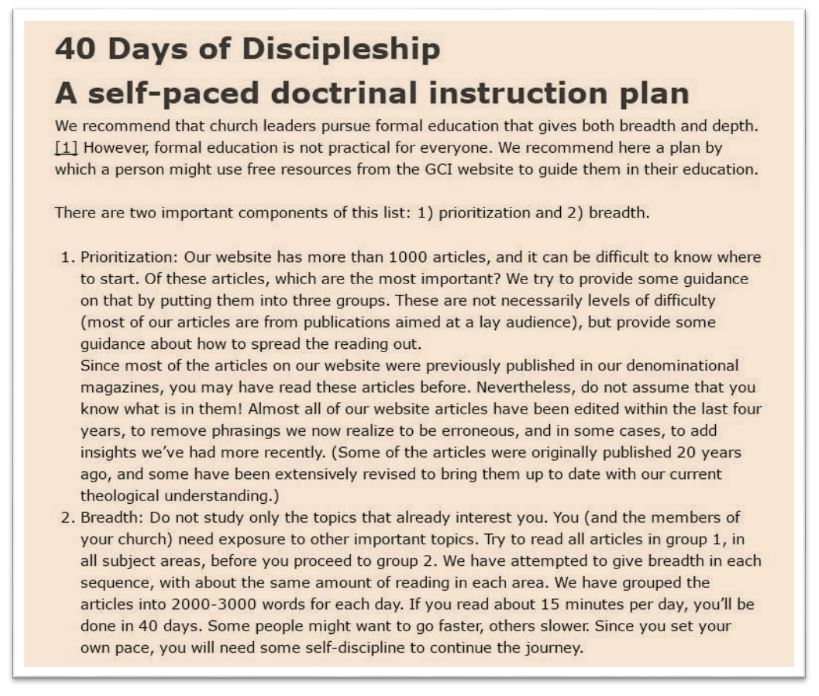Dear Brothers and Sisters,
Here’s an important question for us to ponder: How do we view nonbelievers?
Chuck Colson, founder of Prison Fellowship and the Breakpoint radio program, once answered that question using an analogy: If a blind man stepped on your foot or spilled hot coffee on your shirt, would you be angry with him? Chuck’s answer was that you wouldn’t. Why? Because a blind person is unable to see what is right in front of them.

(public domain)
Now consider that people who have not awakened to the faith of Christ are unable to see the truth that is right in front of them. By virtue of the fall they are spiritually blind (2 Corinthians 4:3-4). But at just the right time, the Spirit moves to open their spiritual eyes so they might see (Ephesians 1:18). The church fathers called this the miracle of illumination, and when it occurs, the opportunity is presented to receive in faith (to believe) what they have now been given eyes to see.
While it is true that some who have had their eyes opened choose not to believe, it is my conviction that at some point most will respond positively to the strong call of God in their life. I pray they do so sooner rather than later so they can experience, even now, the peace and joy of knowing God and making him known.
As we know, nonbelievers hold wrong beliefs about God. Some of those beliefs are the result of poor examples from Christians. Others come from years of being taught illogical and purely speculative ideas about God. These wrong beliefs work to reinforce spiritual blindness. But what is our reaction to their unbelief? Unfortunately, many Christians set up walls of self-protection and even hatred. In erecting these walls, they overlook the reality that nonbelievers are just as important to God as believers. They forget that the Son of God did not come to earth for believers alone.
When Jesus began his ministry, there were no Christians—most everyone was a nonbeliever, including the Jews of that day. But, thankfully, Jesus was a friend of sinners—an advocate for nonbelievers. He knew that, “it is not the healthy who need a doctor, but the sick” (Matthew 9:12). Jesus was committed to seeking lost sinners in order that they might receive him and the salvation he has for them. So he spent great amounts of time with people others viewed as unworthy and unlovable. As a result, the religious separatists labeled Jesus “a glutton and a drunkard, a friend of tax collectors and sinners” (Luke 7:34).
The truth of the gospel is that the Son of God became incarnate, lived, died and ascended to heaven for all people. As Scripture tells us, God loves “the world” (John 3:16), and it would seem that most of these people are nonbelievers. The same God calls us as believers to join Jesus in loving all people. To do that we must view them as who they are in Christ—those who belong to him, those for whom Jesus died and was raised. But many Christians struggle with that. There seems to be no lack of Christians who are willing to condemn others despite the Son having told us that he came not to condemn the world but to save it (John 3:17). Sadly, some Christians are so busy condemning nonbelievers they fail to see them as God the Father does—his beloved for whom he sent his Son to die, even though they do not (yet) know or love him. We might see them as nonbelievers or unbelievers, but God sees them as not-yet believers.

(used with permission)
Before the Holy Spirit opens a nonbeliever’s eyes, they are trapped by the blindness of unbelief—caught up in theological deceits concerning God’s identity and love. It is in this condition that we must love them, not shun or reject them. Part of doing so is praying for the time when, by the Spirit, they will be enabled to see (understand) the good news of God’s forgiving grace and receive (believe) that truth, taking up the new life that is theirs under God’s rule and reign, enabling them to experience the freedom that is theirs as children of God.
As we consider nonbelievers, let’s remember Jesus’ command: “love each other,” he said, “as I have loved you” (John 15:12). And how does Jesus love? By including us in his love and life. He does not set up walls that divide believers and nonbelievers. The Gospels tell us that Jesus loved and included tax-collectors, women caught in adultery, the demon-possessed and lepers. He loved and included women of ill repute, soldiers who mocked and beat him, and criminals crucified at his side. With all these people in mind, Jesus, hanging on the cross, prayed: “Father forgive them, for they do not know what they are doing” (Luke 23:34). Jesus loves and includes all so that all might receive his forgiveness as their Savior and Lord, and by his Spirit live in fellowship and communion with their heavenly Father.
As we share in Jesus’ love for nonbelievers, we will view them as people belonging to God by virtue of creation and redemption despite the fact that they do not (yet) know the One who loves them. When we hold this perspective, our attitude and behavior toward nonbelievers will change. With open arms of compassion, we will embrace them as orphaned or estranged children who need to know their true Father; as lost brothers and sisters who aren’t aware they are related to us through Christ. We will seek to share God’s love with nonbelievers so they too might welcome God’s grace into their lives.
Sharing the Triune God’s love for not-yet believers,
Joseph Tkach
PS: For a related article by Gary Deddo titled Jesus’ Acceptance, click here.







